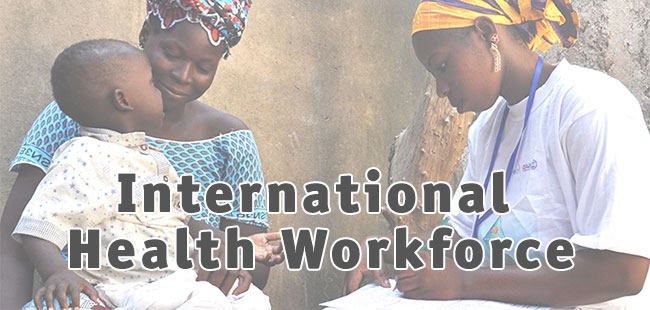The WHO Global Code of Practice
The WHO Global Code of Practice on the International Recruitment of Health Personnel at a glance:
1. Objectives
The Code aims to establish and promote voluntary principles and practices for the ethical international recruitment of health personnel and to serve as a reference for all Member States.
2. Scope
The Code is global in scope, and sets out to guide governments of all Member States and interested stakeholders in matter relating to the international recruitment of health personnel.
3. Ethical international recruitment
The Code discourages the active recruitment of health personnel from developing countries facing critical shortages of health personnel.
4. Fair treatment of migrant health personnel
The Code emphasizes the importance of equal treatment for migrant health workers and the domestically trained health workforce. All health personnel should have the opportunity to assess the benefits and risks associated with different employment positions.
5. Health personnel development and health systems sustainability
Counties should implement effective health workforce planning, education, training and retention strategies to sustain a health workforce that is appropriate for the specific conditions of each country and to reduce the need to recruit migrant health personnel.
6. International cooperation
The Code encourages collaboration between destination and source countries so that both can derive benefits from the international migration of health personnel.
7. Support to developing countries
Member States are encouraged to provide technical assistance and financial support to developing countries or countries with economies in transition that are experiencing a critical health workforce shortage.
8. Data gathering
Member States are encouraged to strengthen or establish health personnel information systems, including information on health personnel migration, in order to collect, analyse, and translate data into effective health workforce policies and plans.
9. Information exchange
Member States should periodically collect and report to the WHO Secretariat data on laws and regulations related to health personnel recruitment and migration, as well as data from health personnel information systems. Member States are encouraged to promote information exchange on international health personnel migration and health systems both nationally and internationally.
10. The Code’s implementation
For purposes of international communication, each Member State should, as appropriate, designate a national authority responsible for the exchange of information regarding health personnel migration and the implementation of the Code.
11. Monitoring of the Code’s implementation
Member States are encouraged to implement the Code in collaboration with all stakeholders. All parties should strive to work individually and collectively to achieve the objectives of the Code.
12. Monitoring of the implementation process
With regard to implementing the Code, Member States should periodically report measures taken, results achieved, difficulties encountered and lessons learnt to the WHO Secretariat. The WHO Director-General will subsequently report to the World Health Assembly on the effectiveness of the Code in achieving its stated objectives and make suggestions for improvement.
